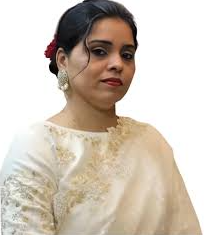Calories in Daliya - Nutritional Value, Carbs and Benefits

Quick Summary
- Daliya is a healthy and delicious food that is popular for its health benefits
- It is a flexible component for various cuisines
- When it comes to healthy eating, it's important to consider both the quantity and quality of calories consumed
Daliya/Dalia is a delicious and healthy food that has acquired popularity because of its health benefits. The number of daliya calories and nutrient value make it a flexible component for various cuisines.
When it comes to healthy eating, it's important to consider both the quantity and quality of calories consumed. So, can you guess how many calories are in daliya? Continue reading to find out!
About Daliya
Daliya, also known as Dalia or dal khichdi, is a popular and healthful Indian dish. It is prepared from cracked or broken wheat, also known as "bulgur". Daliya is commonly served as a breakfast cereal, but it can also be given as a savoury side dish for lunch or dinner.
Ingredients:
Daliya is primarily made of cracked wheat, but other ingredients such as vegetables, spices, and occasionally lentils or pulses can be added to improve the flavour and nutritional content.
The ingredients in dalia can vary depending on whether you're making sweet daliya or savoury daliya. Here are the basic ingredients for both:
For Savoury Daliya:
Cracked Wheat (Daliya)
Water
Oil or Ghee
Seasonings
Vegetables
Spices
Fresh Herbs
For Sweet Daliya:
Milk
Sugar
Spices
Nuts
Raisins
Ghee
Preparation of Daliya
Daliya is a flexible ingredient that can be prepared in various ways to suit your taste preferences. Here's a basic recipe for daliya:
Ingredients:
1 cup daliya (cracked wheat)
Add water or milk
Salt to taste
Optional: Vegetables, spices, and seasonings of your choice
Instructions:
Rinse the Daliya: Begin by thoroughly rinsing the daliya under running water. This aids in the removal of any contaminants or extra starch.
Boil Water: Bring 2 cups of water or milk to boil in a pot.
Add Daliya: Once the water or milk is boiling, add the rinsed daliya to the saucepan. Season with a pinch of salt at this point if desired.
Reduce Heat and Simmer: Cover the saucepan with a lid, and allow the daliya to simmer. Cooking times vary based on the type of daliya, but it usually takes approximately 15-20 minutes to completely cook daliya.
Fluff and Serve: Turn off the heat once the daliya has reached the required consistency. To separate the grains, fluff the daliya using a fork.
Optional Additions: Daliya can be eaten as it is, but you can also get creative by using different ingredients for flavour and nutrients. Here are some suggestions:
- Vegetables: Separately sauté chopped vegetables such as onions, carrots, peas, or bell peppers before mixing them into the cooked daliya for extra texture and taste.
- Spices: To add flavour, mix in cumin seeds, coriander powder, turmeric, or chilli powder. These spices can also be used to make a savoury daliya meal.
- Herbs: Fresh herbs, such as cilantro or parsley, can improve the richness of your daliya.
- Nuts and Seeds: Toasted nuts and seeds (such as almonds and cashews) can provide a crispy feel as well as additional nutrients.
- Vegetables: Separately sauté chopped vegetables such as onions, carrots, peas, or bell peppers before mixing them into the cooked daliya for extra texture and taste.
Other Preparation Methods:
Instant Pot Technique (Savory Daliya):
In the Instant Pot, sauté the ingredients.
Mix in the water, salt, and spices.
Cook for 5-6 minutes under pressure.
Allow for natural pressure release before fluffing, garnishing, and serving.
Sweet Daliya (Kheer):
Roast daliya in ghee.
Cook until the milk is creamy.
Add the sugar, cardamom, and saffron and mix well.
Serve hot or cold, garnished with nuts and raisins.


Caloric Content of Daliya
The daliya calories vary slightly depending on the kind of wheat used and how it is prepared. However, according to USDA, one cup (about 100 grams) of cooked daliya contains roughly 342 calories.
It's important to remember that the daliya calories may change if you add oil, ghee, vegetables, or spices. These ingredients can raise the calorie count.Nutritional Composition of Daliya
Here is the estimated nutritional value of daliya per 100 grams of cooked daliya. If you have particular dietary needs, look at the nutrition label on packaged daliya products for more specific information.
Nutrient Composition Chart of Daliya (100g):
Nutrients | Daily Value (Measurement) |
Calories | 342 kcal |
Total Carbohydrates | 75.9 g (25% of DV) |
Dietary fibre | 12.5 g |
Protein | 12.3 g |
Total Fat | 1.3 g |
Sugar | 0.4 g |
Potassium | 410 mg (11% of DV) |
Magnesium | 164 mg |
Calcium | 35 mg |
Sodium | 17 mg |
Iron | 2.46 mg |
Vitamin B6 | 0.342 mg |
Health Benefits of Consuming Daliya
Due to its nutrient-rich nature, consuming daliya calories provides numerous health benefits. Here are some of the many benefits of having daliya in your diet:
Weight Control: Daliya is an excellent food for those attempting to lose weight. It is low in calories but high in dietary fibre, which promotes fullness and aids with appetite control. This can result in lower calorie consumption and help with weight loss or maintenance.
Satiety and Portion Control: Due to its high fibre content, daliya might keep you feeling full for longer periods. This can help you prevent overeating and make portion control easier, both of which are vital for weight management.
Energy Boost: Thanks to its complex carbs, daliya gives a constant energy supply. This makes it an excellent alternative for athletes and energetic people who require sustained energy throughout the day.
Versatility: Daliya is a versatile component that may be utilised in various cuisines. It ranges from savoury porridge to salads and desserts.
Nutrient-dense: Daliya is high in vitamins and minerals. This includes B vitamins (including niacin and folate), iron, magnesium, and phosphorus. These nutrients are necessary for energy metabolism, red blood cell production, and bone health.
Antioxidant Protection: Daliya includes antioxidants, including selenium, which can help protect your cells from free radical oxidative damage. Reduced oxidative stress benefits general health and can reduce the risk of chronic diseases.
Bone Health: The phosphorus and magnesium content of daliya help to keep bones strong and healthy. These minerals are essential for the construction and function of bones.
Digestive Health: The fibre in daliya helps to keep the digestive tract healthy. It prevents constipation by encouraging regular bowel movements. A healthy digestive system is important for overall health.
Blood Sugar Control: Daliya has a low glycemic index, which means it affects blood sugar levels gradually and steadily. This is especially useful for people with diabetes or who want to control their blood sugar levels.
Heart Health: The combination of fibre and minerals in daliya, including magnesium and phosphorus, promotes heart health. Fibre can help lower cholesterol, while magnesium can assist in managing blood pressure. These factors can reduce the risk of developing heart disease.
Side Effects of Overconsuming Daliya
Daliya, when consumed in moderation, is a nutritious food that offers various health benefits. However, overconsuming daliya or any food can have potential side effects. Here are some side effects of overconsuming daliya:
Hydration Issues: Due to its high fibre content, dalia can absorb water during digestion. Overconsumption, especially when combined with insufficient water intake, can result in dehydration.
Digestive Issues: Consuming too much dalia, especially if it's not prepared properly, can cause stomach issues. Bloating, pain, gas, and diarrhoea are all common problems.
Caloric Excess: Daliya, while nutritious, contains calories. Overeating daliya, whether savoury or sweet, can contribute to an excessive calorie intake. If not balanced with physical exercise, it can lead to weight gain.
Imbalanced Nutrition: A reliance on dalia as a primary food source without a balanced diet might result in nutrient imbalances. It may be deficient in certain vital nutrients obtained through a varied diet, such as fruits, vegetables, and proteins.
Excess Fibre: While fibre is necessary for digestion, eating too much fibre can cause gastrointestinal pain, especially if you're not used to eating a high-fibre diet. It can induce constipation, stomach discomfort, and nutrient absorption problems.
Nutritional Dilution: Consuming too much dalia can result in a dilution of overall nutritious intake. A diet consisting of only one food item may not offer all the essential nutrients required for good health.
Allergies: Some people are allergic to specific grains, such as wheat (from which daliya is commonly prepared). Overconsumption may aggravate allergic responses in such people.
Healthier Alternatives of Daliya
Looking for healthier alternatives to daliya or ways to vary your diet while maintaining nutritional value is always a good approach. Here are some options:
Quinoa: It is a high-protein, high-fibre grain. It's an excellent substitute for dalia and may be used in both sweet and savoury meals.
Oats: They are a high-fibre food that can be used to produce oatmeal, porridge, or savoury oatmeal. They are adaptable and may be customised with different toppings and flavours.
Brown Rice: This is a complete grain that has more nutrients and fibre than white rice. It goes well with savoury foods like vegetable pulao or khichdi.
Legumes: Lentils, chickpeas, and beans are high in plant-based protein and fibre. They can be used in a variety of meals, including soups, stews, and salads.
Dos and Dont’s of Dalia Intake
It's important to tailor your dalia consumption to your specific dietary needs and preferences. Here are some dos and don'ts to keep in mind when consuming dalia:
Dos:
Dalia is nutritious, but it should be part of a well-balanced diet. It should include foods from all groups to ensure you obtain various nutrients.
To avoid overeating, pay attention to portion sizes.
Choose whole wheat dalia or other whole grains to increase fibre and nutritional content.
For extra nutrients and flavour, add veggies like peas, carrots, and bell peppers to your savoury dalia.
Don'ts:
While daliya is nutritious, eating too much of it might result in increased calorie intake, digestive difficulties, and nutritional imbalances.
Using too much oil or ghee can result in a high-calorie, unhealthy daliya. Use them sparingly.
To manage calorie intake, try to restrict the quantity of sugar or sweeteners you add when making sweet dalia.
Some quick daliya items may contain artificial flavours or preservatives. Choose alternatives that have been minimally processed.
Takeaway
Daliya is a wholesome and nutritious cuisine that can be an important part of your diet. Whether you want to lose weight, enhance your digestion, or improve your general health, daliya is a dish that can help.
Contact HexaHealth if you want to learn more about daliya calories and its nutritional composition. HexaHealth will take you through a better nutritional journey based on your specific needs. So, schedule your consultation today!
Suggested Reads
| Weight Loss Exercise | |
| 7 day Diet Plan for weight loss | |
| Fibre- Rich Foods for Weight Loss |
|
| Herbal Tea for Weight Loss |
|
Frequently Asked Questions
How many calories are in daliya?
According to USDA, the number of daliya calories is around 342 per cup (approximately 100 grams) when cooked. The exact quantity of calories in daliya might vary depending on the type of wheat used and how it's made.
How many calories are there in one serving of daliya?
One serving of daliya is usually one cup, which is about 100 grams when cooked. On average, according to USDA, one cup of cooked daliya contains 342 calories.
How many calories are in 1 cup of daliya?
According to USDA, one cup of cooked daliya (around 100 grams) contains approximately 342 calories. Please remember that the precise calorie count can vary significantly based on factors such as the type of wheat used and how it's prepared.
How many calories are in daliya with ghee?
One tablespoon (about 14 grams) of ghee contains approximately 112 calories. If one tablespoon of ghee is added to one cup of cooked daliya, the total count of daliya calories is roughly 456 calories.
Provide the nutritional facts and calorie information for daliya
According to USDA, here are the nutritional facts and calorie information for daliya per 100 grams:
Daliya Calories: Approximately 342 when cooked.
Protein: 12.3 grams
Carbohydrates: 75.9 grams
Dietary Fibre: 12.5 grams
Fat: 1.3 grams
Vitamins: Includes B vitamins (niacin and folate).
Minerals: Contains iron, magnesium, and phosphorus.
Antioxidants: Contains selenium.
Sodium: Low in sodium.
Is daliya Good for Weight Loss?
Yes, daliya is good for weight loss. This is due to its low-calorie content, high fibre, and ability to promote feelings of fullness.
Can you suggest ways to reduce the calorie count in daliya, especially when prepared with ghee?
Here are ways to reduce the count of daliya calories when prepared with ghee:
Use a small amount of ghee or opt for healthier cooking oil.
Increase the proportion of vegetables to daliya.
Choose low-fat yoghurt instead of ghee for creaminess.
Avoid excessive sugar or sweeteners in sweet daliya dishes.
Measure ingredients to control portion sizes.
How many calories are there in one bowl of daliya?
The number in one bowl of daliya calories varies depending on the size of the bowl and how the daliya is prepared. According to USDA, one cup of cooked daliya contains around 342 calories when served in a standard-sized bowl.
Is daliya a low-calorie food choice?
Yes, due to the low number of daliya calories, it is often seen as a low-calorie dietary option. This is because it has a low-calorie value per serving.
Can daliya be a part of a balanced diet for weight loss?
Yes, daliya can be a part of a balanced diet for weight loss. This is due to its low-calorie content, high fibre, and nutritional value.
Is daliya high in protein?
Daliya has a higher protein content than several other grains. When cooked, it normally offers 12 grams of protein per 100 grams of daliya.
Is it good to eat daliya every day?
Yes, it can be beneficial to eat daliya calories every day as part of a balanced diet. This is due to its nutritional value and health benefits.
How many calories are there in 2 bowls of daliya?
2 bowls of daliya would contain around 680-700 calories in total. This is based on the average calorie content of 342 calories per cup of cooked daliya.
How many calories are in daliya with milk?
If you make daliya with one cup of whole milk, the overall calories in daliya with milk are between 200 to 220. Remember that adding sugar, honey, or other sweeteners will raise the calorie count.
What are the health benefits of daliya?
The health benefits of daliya are:
Rich in fibre for digestive health
Supports weight management
Helps stabilise blood sugar levels
Contains essential vitamins and minerals
Low in fat and cholesterol-free
Promotes a feeling of fullness
A good source of plant-based protein
Is Daliya good for bodybuilding?
Yes, daliya can be a beneficial food for individuals engaged in bodybuilding or strength training. This is because daliya is a good protein source and contains complex carbohydrates.
Does daliya increase sugar levels?
Daliya generally has a low glycemic index (GI). This means it is less likely to cause rapid spikes in blood sugar levels when compared to high-GI foods like white bread and cornflakes.
Is daliya good at night?
Daliya is very easy to digest, making it an excellent choice for a night-time meal. It is less likely to induce intestinal discomfort or affect your sleep.
Is daliya a superfood?
Daliya is a nutritious food, however, it is not considered a "superfood." While daliya is healthy and has various health benefits, it lacks scientific support and acknowledgement that some other foods do.
Does daliya reduce cholesterol?
When combined with a heart-healthy diet, such as a salad or lentil soup, daliya can help lower cholesterol levels. Daliya is naturally low in saturated fat, which has been linked to an increase in LDL (bad) cholesterol levels.
Is daliya good for the liver?
Yes, daliya is a liver-friendly food when combined with a well-balanced and healthy diet. Daliya is high in dietary fibre, particularly soluble fibre. This promotes digestion, regulates bowel motions, and can improve overall liver health.
What does Ayurveda say about daliya?
Ayurveda classifies daliya as sattvic. Sattvic meals are seen to be pure and clean, and they enhance mental clarity and tranquillity. They are advised for people seeking spiritual development and overall well-being.
What is the side effect of daliya?
Daliya is generally well-tolerated, but excessive consumption may lead to:
Digestive discomfort or bloating
Increased flatulence (gas)
Overeating if portion sizes are too large
What is the best time to eat Dalia?
Daliya can be enjoyed at any time of the day. However, it's often recommended for breakfast or as a light dinner.
Is daliya gluten-free?
No, daliya is not gluten-free. It is prepared from whole wheat grains and contains gluten, a protein present in wheat, barley, rye, and their derivatives.
Is Dalia good for uric acid?
Individuals with elevated uric acid levels may benefit from daliya calories. This is due to its low purine content, which might contribute to high uric acid levels.
What do we call Indian dalia in English?
In English, "dalia" is also known as "cracked wheat" or "bulgur wheat." These phrases refer to the same wheat product known as dalia in India and adjacent countries.
References
All the articles on HexaHealth are supported by verified medically-recognized sources such as; peer-reviewed academic research papers, research institutions, and medical journals. Our medical reviewers also check references of the articles to prioritize accuracy and relevance. Refer to our detailed editorial policy for more information.
Last Updated on: 11 July 2024
Reviewer

Dr. Aman Priya Khanna
MBBS, DNB General Surgery, FMAS, FIAGES, FALS Bariatric, MNAMS General Surgery
13 Years Experience
Dr Aman Priya Khanna is a highly experienced and National Board–Certified Laparoscopic, GI, and Bariatric Surgeon with over 13 years of clinical expertise.
He is widely regarded as one of the best bariatric surgeons in Ahmedabad, ...View More
Author

Charu Shrivastava
BSc. Biotechnology I MDU and MSc in Medical Biochemistry (HIMSR, Jamia Hamdard)
3 Years Experience
Skilled in brand marketing and SEO-driven medical content that educates and engages patients, healthcare professionals, and the general public. With medical writing and proofreading expertise, she ensures accuracy,...View More
Expert Doctors (10)
NABH Accredited Hospitals (8)
Latest Health Articles




























 Open In App
Open In App